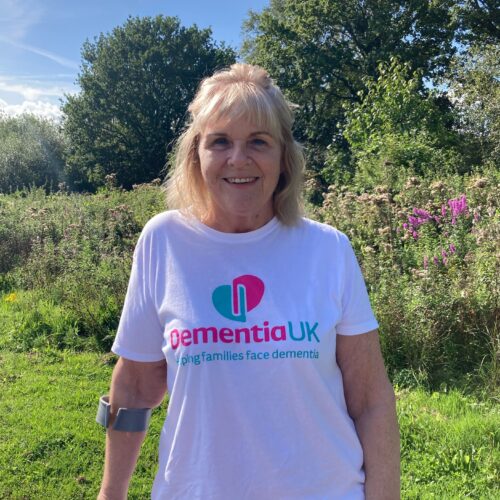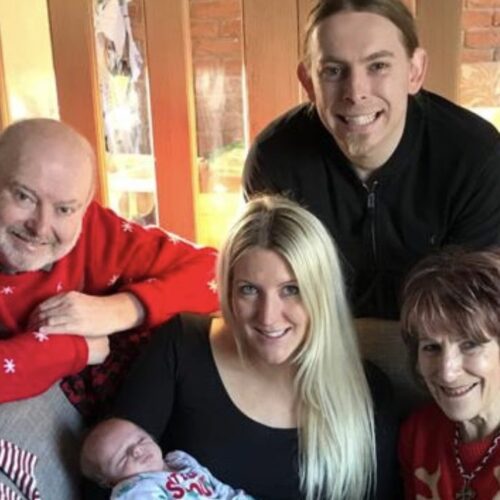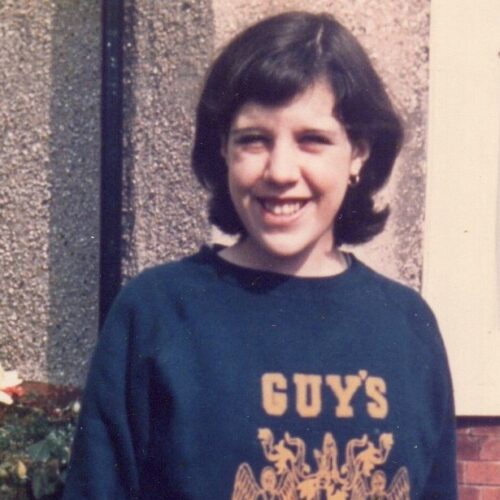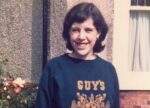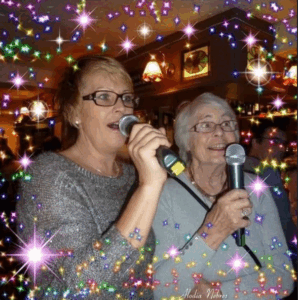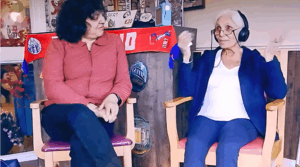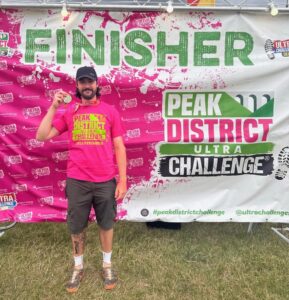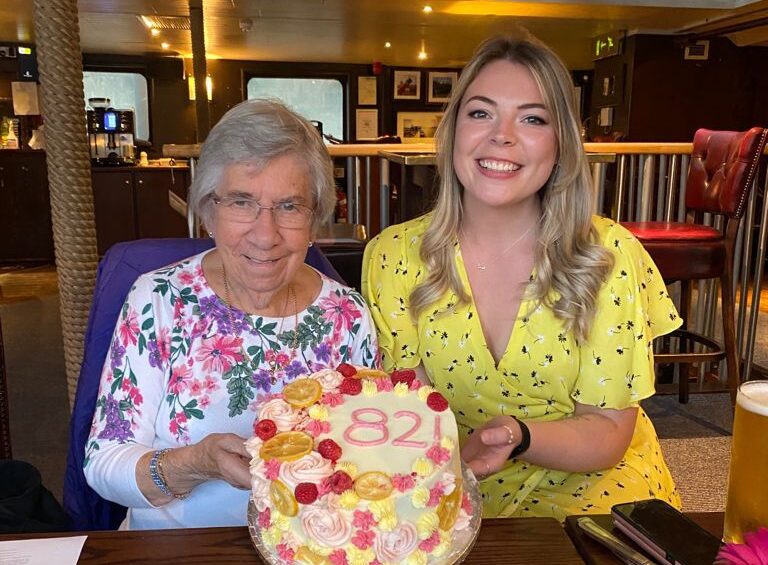
Lucy and Margaret's story: Making magical memories
MFMM's Research Assistant, Lucy Kerry, tells us about how music altered the path of her's and her grandma Margaret's lives.
Tell us about yourself and your journey to joining the team at MFMM
I’m Lucy and I’m the newest member of the team. I’m the Research Assistant and I’m currently running our care home study where we’re partnering with residents living in Quantum Care homes, observing the effects of listening to familiar music as part of their care.
I found Music for my Mind with a Google search for “Music and dementia”. It’s what I knew I wanted to work in, and I actually applied for the job while living in a camper van on the North Island of New Zealand. I did my interview two days after I got off the flight, so I was a little bit jet lagged, but obviously it went well because I’m here!
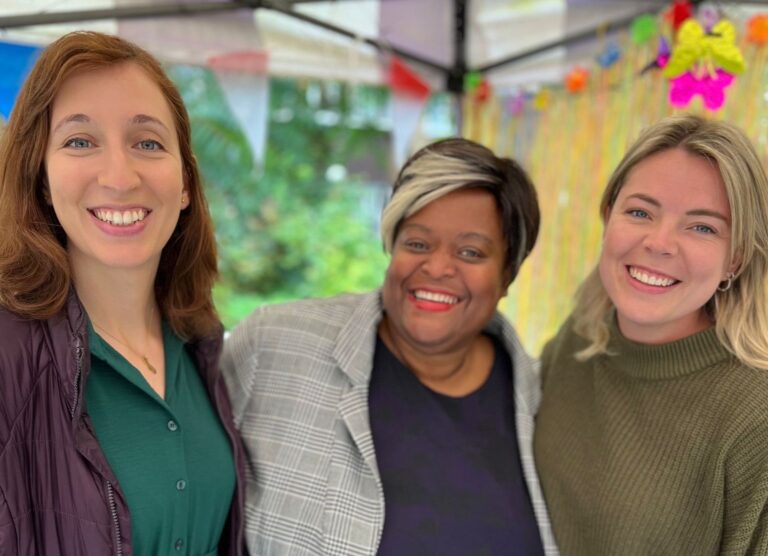
What is your experience of dementia within your family?
It was my grandma, Margaret. She was a very special person – generous to a fault. She was really funny, really clever and quick-witted – you couldn’t get anything past her. We were incredibly close, and as I was growing up she and I were like a little double act. At her funeral there were so many people there who we called cousins because she just brought people into her house. It didn’t matter who you were, if you needed a family to look after you, my grandparents saw that as their job.
The journey to a diagnosis
I remember I was very little, and we went into the hospital to see her. My brother had made her a “get well soon” card. I remember her holding the card upside down and looking at it and going “That’s lovely, thank you, Owen”.
Although I was quite small, I remember thinking “That’s not right, she didn’t read that card properly”. Once she was home from the hospital, the first thing we noticed was that her concept of time completely changed. She would do things like pick me and my brother up from school, we’d get to her house and within 15 minutes she’d ring my mum and say “Are you not coming to get the kids? They’ve been here for hours.”
My grandma was eventually diagnosed with mixed dementia – Alzheimer’s disease and vascular dementia. They were the two biological causes.
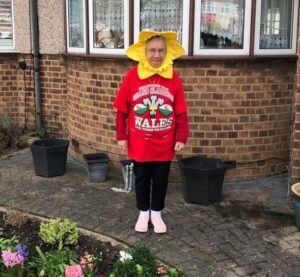
Life doesn't stop after a dementia diagnosis
We’d notice little things like she’d get a little bit more confused, and she stopped driving eventually. Public spaces became a little bit more overwhelming. She didn’t like it when it was loud where previously she would have gone to concerts and loved being in the midst of things.
Then my grandad started taking her to Singing For The Brain classes. She was reluctant to go initially as she didn’t want to be lumped in with other people with dementia. But it soon became her favourite day of her week, and she loved it – she really came to life in those classes. It was incredible. For some people who went along, you just watched them transform and come to life. You would see a song spark something and it was just beautiful to watch. It was absolutely amazing.
Grandma was Welsh, so music was a huge part of her life. There’s a little poem that’s on every Welsh family’s wall:
“To be born in Wales, Not with a silver spoon in your mouth, But with music in your blood And with poetry in your soul”
Music runs through these Welsh communities, in a way that it maybe doesn’t in other communities.
She’d come home after these sessions, and she’d talk about this lady called Marie. I thought this woman must be pretty special, so I came with her and granddad to a session around Christmas time. Well, this woman Marie – I have never met anyone like her before or since and she is my complete inspiration! She is why I’m doing what I’m doing now. When she was in a room everyone listened to her and everyone gravitated towards her.
Marie unfortunately passed away a couple years ago, but now when I’m going into care homes, I think about the way she was with my nan and I want to be like that for people with dementia – that person who goes in without judgment.
Making memories with Margaret
In January 2016 my granddad died after a very short illness we weren’t expecting. It was then we realised how much he was doing for her and how much help she truly needed.
Fortunately, I was able to take a bit of time out of work, to go with her to her groups and basically just hang out with her for a bit. We just had the best time, and you wouldn’t know that there was a 60-year age gap between us.
As she started getting worse, the music would be retained in a way that other things weren’t and she’d lose interest in some things that she had learned before, but music consistently stayed.
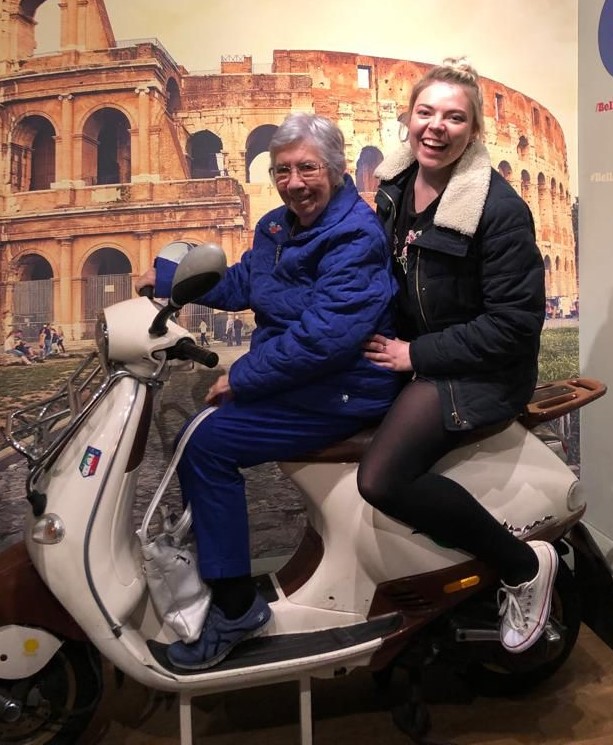
Music is the golden thread
My grandma died about three weeks before my dissertation was handed in. It was an incredibly sad and hard time for everyone. But the golden thread that runs through this is that music, even at the end, was able to help her. I remember finding an old iPod shuffle and loading it up with some Tom Jones, hymns, and Welsh male voice choirs – The Fron was her favourite – and she’d calm down and sit and sing along to them. I knew then that I needed to work in the field of dementia.


